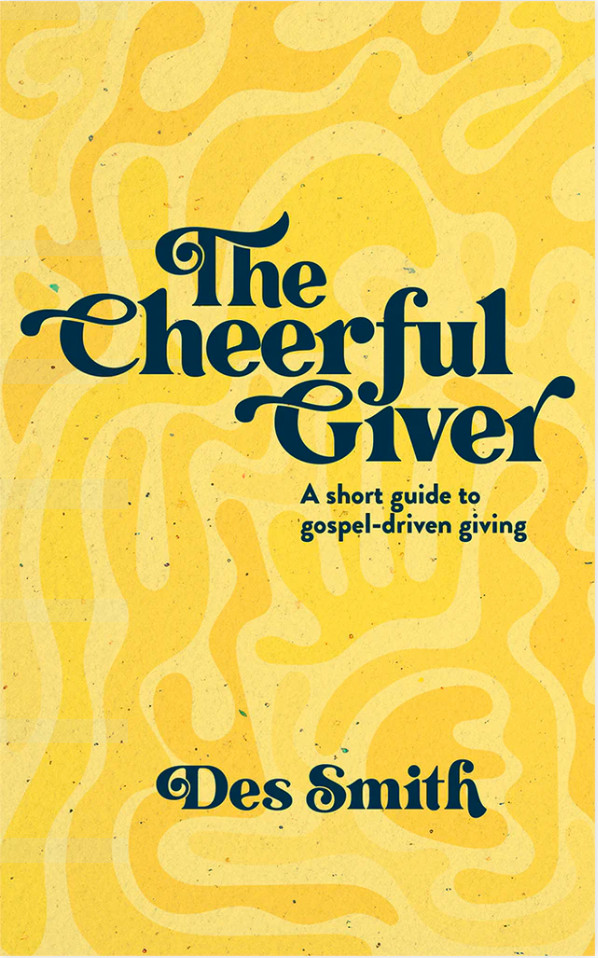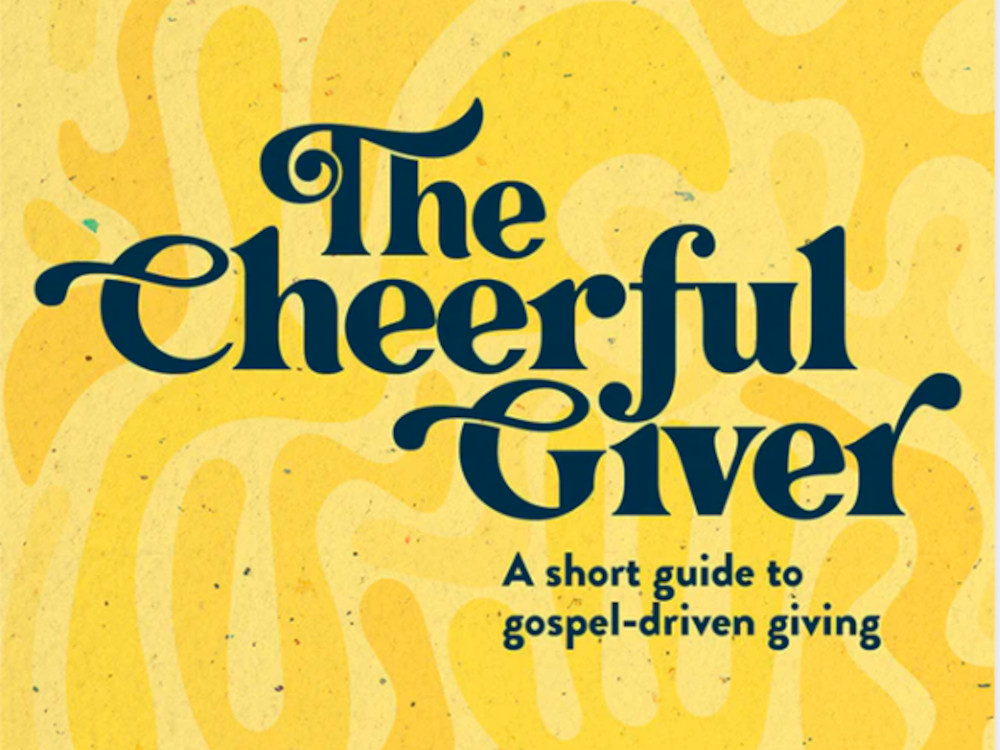Adelaide pastor Des Smith has written a book, “The Cheerful Giver’. It’s one of those Bible phrases constantly in danger of being a cliché. So what can Smith do to rescue it? The Other Chhek interviewed him and found out.
1. Has writing a book called The Cheerful Giver affected how you think about giving to the church?
It’s funny, it hasn’t actually affected how I think about giving to the church, as I was always convinced we needed to do that. But it has affected how I think about giving to other things, especially needy or persecuted Christians. Before I wrote the book (and gave the sermon series it’s based on), I never thought of needy Christians as a category we were to give to. I just thought in terms of: local church, mission, and charity. But when I looked at the Bible, I saw there was a rich vein of Christians giving to other needy Christians because of our common family bonds. For example:
‘This is how we know what love is: Jesus Christ laid down his life for us. And we ought to lay down our lives for our brothers and sisters. If anyone has material possessions and sees a brother or sister in need but has no pity on them, how can the love of God be in that person? Dear children, let us not love with words or speech but with actions and in truth.’ (1 John 3:16–18)
As a result of that, our family has now changed our giving patterns, including ministries like ‘Open Doors’ in our annual giving.
2. How generous is generous?
That’s the $64,000 question! (And no, the answer is not that we all need to give $64,000😊). But seriously, it’s a big question for people. I think the basic answer is: ‘As generous as you can be.’ God has been so generous to us – given us everything we have – and there are so many needs in the world we want to give as much as we can. Of course, what this looks like will differ according to our circumstances, and we don’t want to give irresponsibly. But I think – especially in the affluent West – our hearts should always want to lean towards giving too much rather than too little because they’re so gripped by God’s love for us and our love for others.
3. Are there good and bad ways to be cheerful about giving? Or for a church to be cheerful about it?
Of course, a bad way to be cheerful about giving is not to be cheerful about it at all! To give begrudgingly. So we mustn’t do that. But it’s also possible to give in a way that looks cheerful and excited but is actually just self-promoting. That is, we’re really cheerful about giving generously, and we let everyone know about it, in a way that says, ‘Look at me, I’m such a generous giver!’ And, of course, we mustn’t do that either.
I think the best way to be a cheerful giver is just to give and then largely forget about it, but instead dwell on how much God has to give us and what the money we give will do for others, and give thanks for that.
4. What promises does God make to us about giving?
I think God actually promises us a lot about giving.
Firstly, he promises us spiritual blessings: that he will “enlarge the harvest of your righteousness” (2 Cor 9:10) and that “it is more blessed to give than to receive” (Acts 20:35). This doesn’t mean our giving earns salvation, or brownie points with God. It just means that, in giving, we become more like Jesus and so more righteous in that sense, much like working out in a gym builds our muscles.
Secondly, he does actually promise to look after us materially if we give (though with important caveats). Right before saying giving will enlarge the harvest of our righteousness, Paul also says, “Now he who supplies seed to the sower and bread for food will also supply and increase your store of seed . . .”’” (2 Cor 9:10), which I take to mean material support. Likewise, he says just before, “And God is able to bless you abundantly, so that in all things at all times, having all that you need, you will abound in every good work” (2 Cor 9:8), in which ‘all that you need’ also seems to be all that you need materially. So God does seem to say that God won’t let us fall into need if we give, and in fact gives that promise as a ‘safety net’ to encourage us to give.
Of course, there are caveats to this. We certainly don’t give in order to make money (as the prosperity gospel teaches). Rather, God promises to “repay” us for our giving not so we can become rich ourselves, but so we can keep giving to others: so we “can be generous on every occasion” (2 Cor 9:8). Likewise, God doesn’t promise that no Christian will ever be poor: the Macedonians, for example, were very poor (2 Cor 8:2). As such, though Christians are called to be generous, we’re not called to give beyond our means (2 Cor 8:11-12) (though are also free to, if we choose (2 Cor 8:3).
Who is this book intended for?
It really is intended for every Christian, as all of us are called to give generously. It could be bought by individuals or by churches for their members. My idea was to provide churches with a short, cheap book they could buy in bulk (it’s much cheaper that way) to give to new members, or to all members as part of a series on giving. I wanted a book like that to give to my people, but because one didn’t exist (as far as I knew), I thought I’d write one!

The Cheerful Giver: A short guide to gospel-driven giving, Des Smith, Matthias Media 2024. Available from The Wandering Bookseller $9.99

